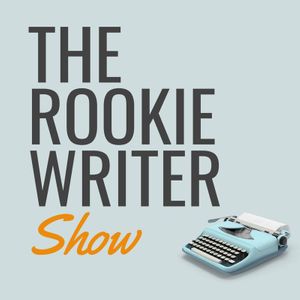Episode 019: Find the Right Length for Your Story, Pt. 1
The Rookie Writer Show - A podcast by H. Dair Brown, The Rookie Writer Show Host

Categories:
So that we’re all on the same page, let’s start with a quick overview of the commonly-accepted ranges for different types of fiction.
LengthSix-Word Story6 wordsAmerican SentenceOne sentence with exactly twelve syllablesTwitterature280-characters or lessHint Fiction25 words or less50-Word Stories/Ultra-Shorts/Minisaga/Dribble50 to 55 words or less(Sometimes exactly 50 words with up to a 15 character title or exactly 55 words with up to a 7 word title)Micro Fiction/Drabble100 words or lessMicrostory250-300 words or lessSudden Fiction750 words or lessFlash Fiction100 to 1,500 words(Usually 1,000 words or less)Short Story1,000 to 7,500 wordsNovelette7,500 to 17,500 wordsNovella17,500 to 40,000 wordsNovel40,000 to 125,000 wordsEpic or Super Novel125,000+ wordsSeries2 or more connected novelsUnlimited words
Are You a Flasher?
Many of us start out writing with the idea of being a novelist and jump straight into that form. And some will have produced some number of novel drafts or partial drafts. (Can I get a shout out from my NaNoWriMo crowd?!) There is absolutely nothing wrong with starting with the novel (or even a series) in mind. If that’s working for you, keep at it! If, however, you’re struggling a little (or maybe even if you’re not), consider Ray Bradbury’s advice on this subject and give shorter fiction a go:
The best hygiene for beginning writers or intermediate writers is to write a hell of a lot of short stories. If you can write one short story a week—it doesn’t matter what the quality is to start, but at least you’re practicing, and at the end of the year you have 52 short stories, and I defy you to write 52 bad ones. Can’t be done. At the end of 30 weeks or 40 weeks or at the end of the year, all of a sudden a story will come that’s just wonderful.Ray Bradbury – “Telling the Truth,” the keynote address of The Sixth Annual Writer’s Symposium by the Sea, sponsored by Point Loma Nazarene University, 2001
In next week’s episode, we’ll be chatting about short stories, novelettes, and most likely novellas. For today, we’re focusing on the shorter end of the spectrum: Flash* AKA Flash Fiction AKA Short-Short Stories AKA Short-Shorts.
These stories develop plot and character with a brevity that is sometimes extreme, using as few as six words. The shorter the work, the more it relies on suggestion and evocative language to make the reader an active partner in developing the plot and/or character. (A great example of this is a 6-word story often attributed to Hemingway: “For Sale, Baby Shoes, Never Worn.”) However, even the author of a 1,500-word flash fiction piece will need to be mindful of how they choose their words. Those six pages will fly by, I promise!
*One fun little thing that sometimes leads to confusion: “Flash Fiction” is also a term for a subcategory of Flash. See table above.
That being said, use the words you need to tell your story. Here’s a great example from Laura McMillan and John M. Cusick, Editors of Armchair/Shotgun:
“Take advantage of shades of meaning to paint the picture you want with maximum economy. If “blue” doesn’t cut it, you could try “a vibrant shade of blue-green that reminded him of that time he flew over the Caribbean,” sure. But if you’re limited to 300 words,